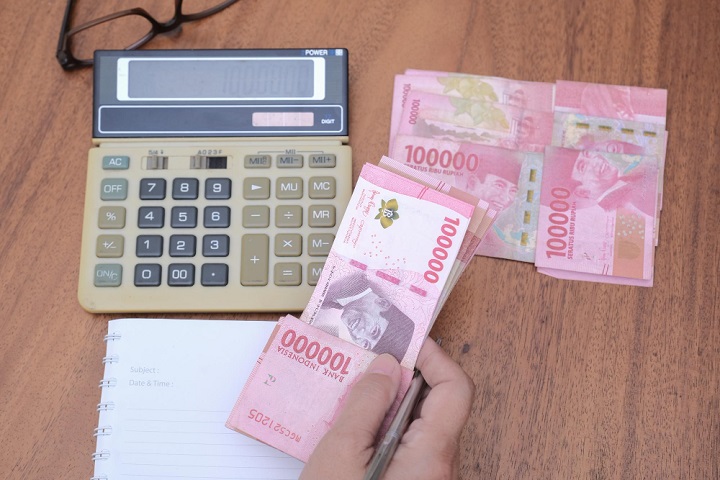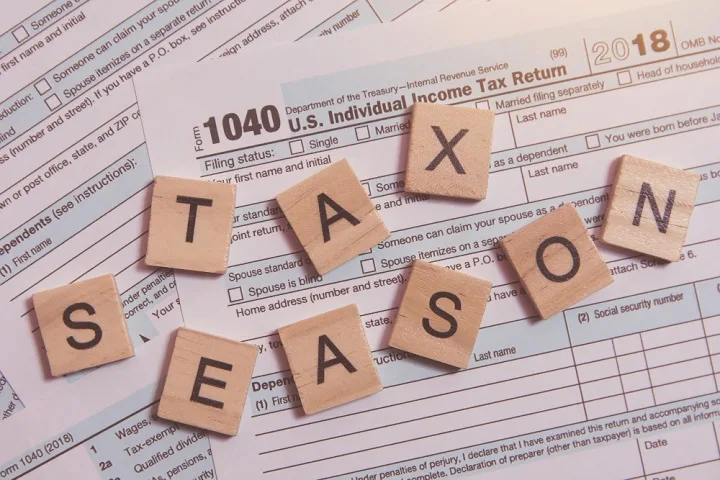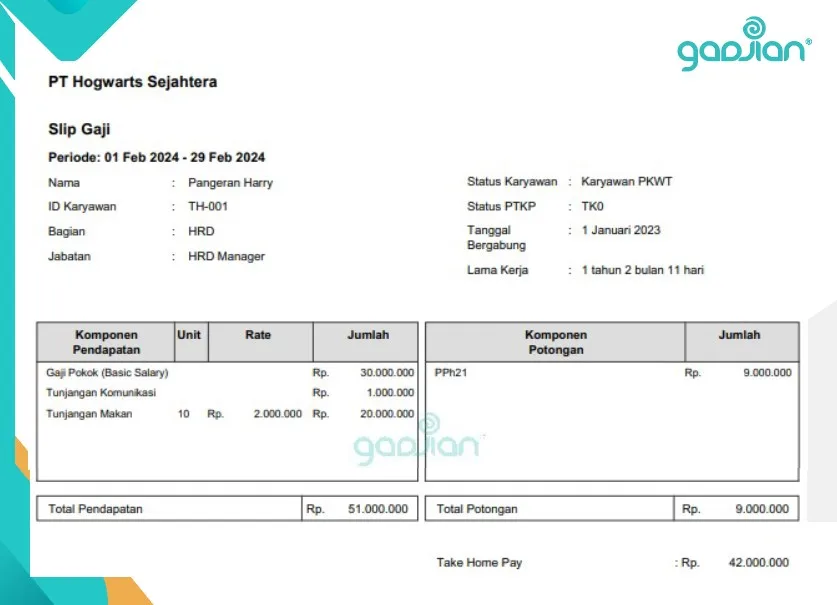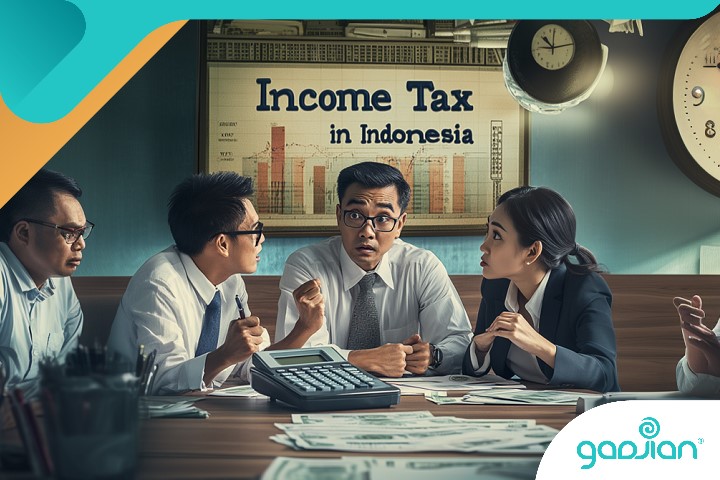A foreign company operating a business in Indonesia through a permanent establishment (PE) is treated similarly to a domestic business entity in taxation. All revenue earned by the organization within the country is subject to income tax.
So, if you plan to set up a PE to expand your business here, you need to know the types of income tax Indonesia.
For domestic enterprises, income tax applies to worldwide income earned from Indonesia and other countries. Meanwhile, for PEs, income tax is only levied on territorial income earned within Indonesia.
Corporate Income Tax
According to the latest regulations, the corporate income tax Indonesia (CIT) or PPh Badan rate is 22% of the annual taxable income. Specifically, for domestic corporate taxpayers in the form of publicly listed companies (Tbk) with 40% of shares listed on the Indonesian stock exchange, a 3% rate reduction applies, making the tax rate 19%. However, for PEs, the CIT rate reduction does not apply, so the tax rate remains at 22%.
In addition to CIT, PEs are also subject to branch profit tax, a PPh 26 as stipulated in the Income Tax Law No. 36 of 20081. The standard branch profit tax rate is 20%, levied on the income after tax. However, some of the income reinvested in Indonesia is non-taxable.
Also Read: Work Permit Requirements to Employ Expatriates in Indonesia
Taxable income after tax from a permanent establishment in Indonesia is subject to a 20% tax except the income reinvested in Indonesia, the provisions of which are further regulated by or based on the Minister of Finance Regulation. (Article 26 Paragraph 4)
CIT = 22% x Taxable Income
PPh 26 = 20% x (Taxable Income – CIT)
Example calculation:
Based on the financial report, the PE of a foreign company earns an annual taxable income of IDR 20,000,000,000. The tax calculation is as follows:
| Taxable income | IDR 20,000,000,000 | |
| PPh Badan (CIT) | 22% x IDR 20,000,000,000 | IDR 4,400,000,000- |
| Income after tax | IDR 15,600,000,000 | |
| Pajak PPh 26 (branch profit tax) | 20% x IDR 15,600,000,000 | IDR 3,120,000,000 |
The 20% PPh 26 rate applies to PEs from non-treaty partner countries of the Double Taxation Avoidance Agreement (DTAA). For PEs from treaty partner countries, a lower tax treaty rate applies as agreed in the bilateral treaty.
Personal Income Tax
In addition to calculating corporate tax, as an employer in Indonesia, you would calculate and withhold personal income tax or employee tax and then remit it to the state treasury. Two types of employee taxes are PPh 21 for resident taxpayers and PPh 26 for non-resident taxpayers.
Non-resident taxpayer
A non-resident taxpayer is an individual who resides outside Indonesia and receives income from Indonesia, such as foreign employees or expatriates working in Indonesia for less than 183 days in a year. The standard PPh 26 rate on the gross income of non-resident taxpayers is 20%.
PPh 26 employee = 20% x gross income
If they come from a treaty partner country, a lower tax treaty rate applies, up to 0%, or the taxation authority is in the country of residence. However, a tax treaty rate is applicable if they provide a certificate of domicile or DGT form authenticated by the competent authority of their home country.
Resident taxpayer
Not all foreign employees you hire are considered non-resident taxpayers subject to PPh 26. If they work in Indonesia for more than 183 days, reside in Indonesia during a fiscal year, or hold a tax identification number (TIN) in Indonesia, they are classified as resident taxpayers and are subject to PPh 21.
Employee Income Tax Objects
All types of income received by employees from employers concerning work and services are subject to tax, including:
- Salaries or wages
- Allowances
- Overtime pay
- Bonuses
- Religious holiday allowances
- Commissions, gratuities, and similar
- Fringe benefits
- Severance pay for employment termination
Monthly PPh 21

As an employer, you must withhold PPh 21 using the latest tax rate on the monthly gross income of your employees, including salaries, allowances, overtime pay, bonuses, and other income included in the monthly payslip.
The income tax rate Indonesia 2024 combines the average effective rate (TER) and the progressive rate as Government Regulation No. 58 of 20232.
PPh 21 withholding per month = TER x gross monthly income
The TER consists of 125 rates grouped into three categories based on the PTKP status of employees. PTKP status depends on their marital status and number of dependents.
Also Read: Employment Types in Indonesia: Contracts and Regulations
For example, if your employee receives an income of IDR 25,000,000 in January with a status of single and has no child, the effective rate category A applies, which is 10%.
PPh 21 withheld in January = 10% x IDR 25,000,000 = IDR 2,500,000.
Annual PPh 21
The TER rate applies only to PPh 21 employee withholding from January to November. The PPh 21 calculation for December uses the progressive rate of Article 17 Paragraph 1(a) of the Income Tax Law as follows:
| Layer | Taxable Income | Rate |
| 1 | Up to IDR 60,000,000 | 5% |
| 2 | Over IDR 60,000,000 to IDR 250,000,000 | 15% |
| 3 | Over IDR 250,000,000 to IDR 500,000,000 | 25% |
| 4 | Over IDR 500,000,000 to IDR 5,000,000,000 | 30% |
| 5 | Over IDR 5,000,000,000 | 35% |
For the annual tax calculation, the progressive rate applies to taxable income, not gross income.
Example of annual PPh 21 calculation:
If your employee receives an annual taxable income of IDR 240,000,000, the yearly tax payable that you must withhold is:
| Layer | Rate | Tax Calculation | Total Annual PPh 21 |
| 1 | 5% | 5% x IDR 60,000,000 | IDR 3,000,000 |
| 2 | 15% | 15% x IDR 180,000,000 | IDR 27,000,000+ |
| IDR 30,000,000 |
The PPh 21 withheld from January to November, totaling IDR 27,500,000, is treated as a tax credit, so the PPh 21 you need to withhold in December is IDR 2,500,000.
Tax Exempt Components

Personal income tax PPh 21 applies to taxable income, which is gross income deducted by some components exempted from taxation. Below are the components excluded from the annual PPh 21 calculation of employees receiving regular monthly income:
1. Occupation expense: Taxpayers may deduct expenses used to earn income by 5% of gross income, not exceeding IDR 6,000,000 per year.
2. Pension expense: Taxpayers receiving regular pension income may deduct pension expenses by 5% of gross income, up to a maximum of IDR 2,400,000 per year.
3. Pension contributions or old-age security program: If participating in a pension or old-age security program, taxpayers may also deduct it from gross income based on the contribution amount multiplied by 12 months.
4. Non-taxable income (PTKP), which amounts to:
- IDR 54,000,000 for a single taxpayer
- Additional IDR 4,500,000 for a spouse
- Additional IDR 54,000,000 for a husband-wife combining their income
- Additional IDR 4,500,000 for a dependent, maximum of 3 dependents.
5. Zakat or religious compulsory contributions paid by the taxpayer
Tax on Severance Pay
If you terminate an employee, you must calculate and withhold tax on the severance pay. The tax rate is progressive, meaning the higher the income layer, the higher the tax percentage. The severance pay tax rate refers to Government Regulation No. 68 of 20093:
- 0% for severance pay up to IDR 50,000,000
- 5% for severance pay above IDR 50,000,000 to IDR 100,000,000
- 15% for severance pay above IDR 100,000,000 to IDR 500,000,000
- 25% for severance pay above IDR 500,000,000
For example, if the severance pay amount to IDR 60,000,000, you would withhold PPh 21 as follows:
| 0% x IDR 50,000,000 | = IDR 0 |
| 5% x IDR 10,000,000 | = IDR 500,000 |
| Total PPh 21 Payable | = IDR 500,000 |
Income Tax Return
Every taxpayer in Indonesia is required to file an income tax return (SPT) PPh 21. There are several types of SPT filing, namely:
1. Periodic Tax Return
When making monthly PPh 21 withholding, you are supposed to prepare tax slip Form 1721-VIII and provide it to the respective employee no later than one month after the end of the tax period. For example, you should distribute the tax withholding slip for July no later than August.
This tax slip is a remittance receipt of the PPh 21 tax deducted from the employee’s salary. After the tax payment for the employee, you need to file a periodic tax return (SPT Masa) through the e-Bupot 21/26 application on the Directorate General of Taxes website.
The remittance of employee tax is better completed no later than the 10th of the following month. If delayed, you must bear a 2% fine. Meanwhile, the filing of the monthly SPT is due on the 20th of the following month.
2. Annual Tax Return
For annual PPh 21 deductions, you should prepare tax slip Form 1721-A1 for permanent employees and provide it no later than one month after the end of the tax year or by the end of January. This tax withholding slip is a personal taxation document required to file the annual tax return. The individual yearly SPT filing is no later than March 31.
3. Annual Corporate Tax Return
After the end of the tax year, business entities, including PEs in Indonesia, should file their corporate tax returns (SPT PPh Badan) no later than April 30. Since the PE is a branch of an entity established and domiciled abroad but earns income from Indonesia, the Directorate General of Taxes treats them as equal to domestic business companies: they are obliged to file SPT PPh Badan.
Taxpayer Identification Number (NPWP)
NPWP is the tax identification number (TIN) required for every tax payment in Indonesia, whether for companies, domestic employees, or foreign employees working in Indonesia for more than 183 days or intending to stay in Indonesia. The Directorate General of Taxes issues TIN to facilitate tax administration processes, such as filing tax returns, paying taxes, and claiming refunds.
To obtain an NPWP for a company or individual, you can apply online at the Directorate General of Taxes website or visit the local tax office directly. The requirements include bringing a passport and a temporary stay permit card (KITAS) or a permanent stay permit card (KITAP).
Cancellation of NPWP
If you or your expatriate employees will permanently leave Indonesia, it is necessary to cancel the NPWP. It means you or your employees are no longer domestic taxpayers and have no tax obligations in Indonesia.
To apply for NPWP cancellation, the applicant should visit the tax office, fill out a form, and attach the required documents, including the NPWP card, a copy of the Exit Permit Only (EPO), a letter from the company stating that the applicant no longer works at the company and other supporting documents.
However, the NPWP cancellation application has audit consequences. The tax office will audit the concerned tax reports, including unpaid taxes.
Also Read: NPWP: Key to Tax Compliance in Indonesia
Manage Payslips and Employee Income Taxes with a Payroll App
To help you simplify the administration of payroll and employee taxation in your company, you can use Gadjian, a payroll software Indonesia designed to compute payslips automatically under the latest labor and tax regulations.
The income tax calculator in the Gadjian web payroll application will automatically compute employee income taxes for PPh 21 and PPh 26, resulting in the net salary amount after tax deductions on the employee payslip.

No matter if you lack knowledge of Indonesian tax regulations, Gadjian will assist you in managing employee income tax administration, including calculating, deducting, remitting, and filing SPT monthly.
For PPh 26, Gadjian accommodates Indonesia’s DTAA provisions with partner countries, applying tax treaty rates for expatriates from partner countries and standard rates for those from non-partner countries.
However, if you do not possess the resources to manage payroll and employee taxes, it is advisable to use Pegawe payroll outsourcing services for greater efficiency.
Pegawe will handle your employee administration tasks so that you can focus on your business development at your branch office in Indonesia. Our services include:
- Payroll processing, from calculating remuneration, preparing payslips, and disbursing employee salaries;
- Social security programs and BPJS health insurance for employees, including registration, contribution calculations, payments, and data reporting;
- Personal income tax, including calculating, deducting, paying, and reporting PPh 21 and PPh 26 deductions according to the latest tax regulations;
- Employee attendance tracking using the practical and accurate online attendance application Hadirr, including recording overtime hours;
- HR consultant in industrial relations issues, such as employment termination and severance pay calculation under Indonesian labor laws.
So, there is no need to worry about employment issues, payroll, and taxation in Indonesia. Pegawe will ensure your company complies with applicable legal regulations to avoid penalties and fines.
Sumber




